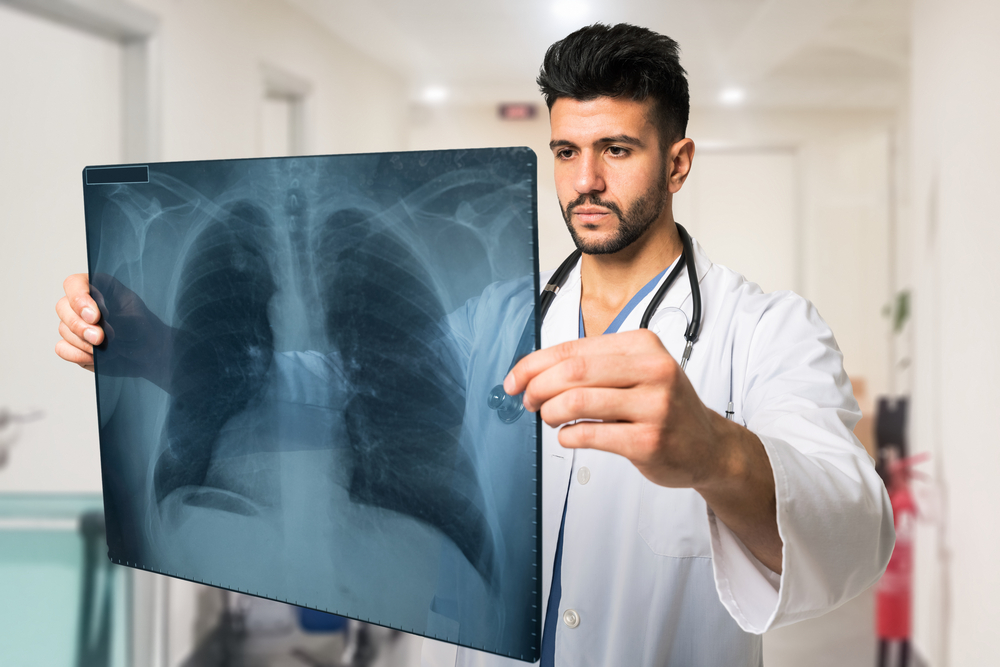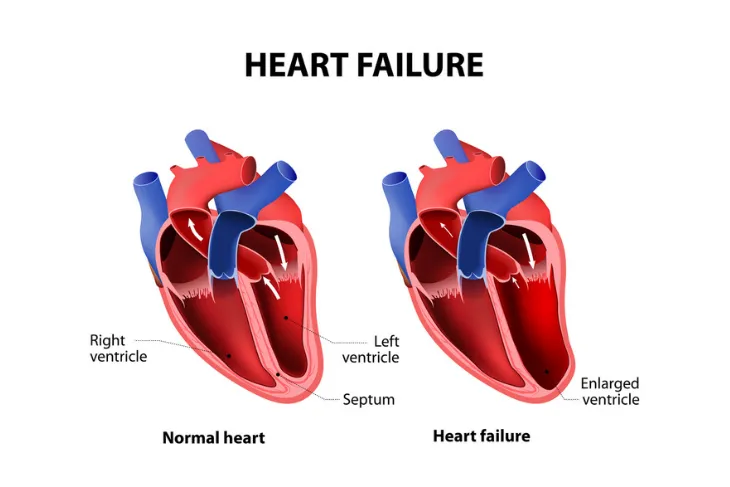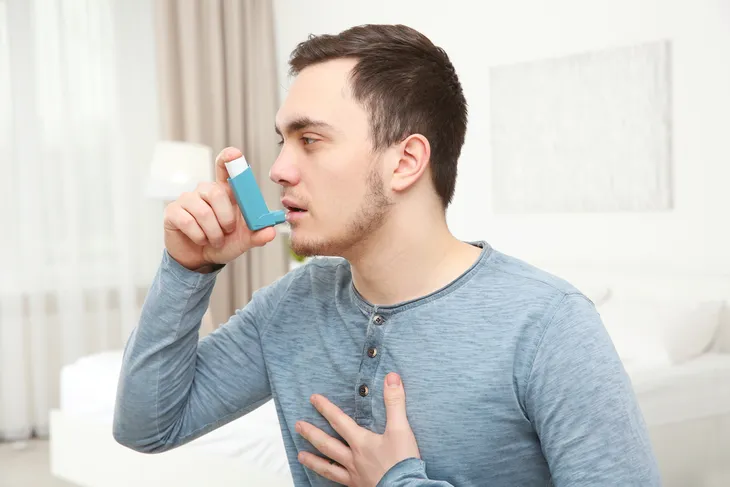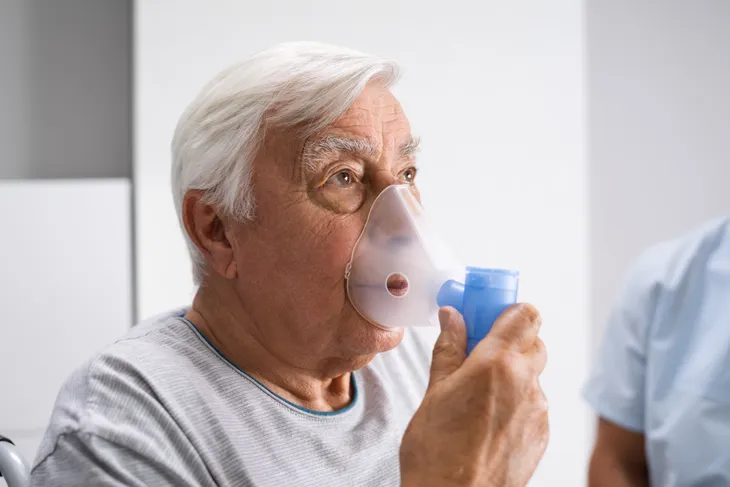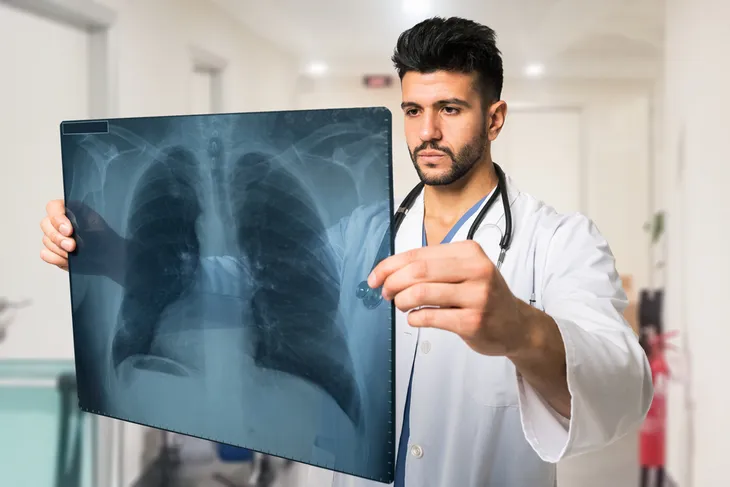Feeling unable to catch one’s breath is something most everyone experiences at some point in their life, and it is often due to having overexerted the body physically. This is known as temporary dyspnea, also known as shortness of breath, which dissipates quite quickly.
This is not always the case, however, as dyspnea often occurs due to other health problems. Whether it occurs suddenly (referred to as acute dyspnea) or is experienced for a prolonged period of time (known as chronic dyspnea), dyspnea should not be disregarded. The following are eight possible reasons for experiencing shortness of breath.
Anxiety (Acute)
When a person is experiencing anxiety, dyspnea often occurs as a result of hyperventilation. Also known as “overbreathing,” the Calm Clinic says that hyperventilation happens “when your body is receiving too much oxygen and is expelling too much carbon dioxide.”
This over-intake of oxygen and release of too much carbon dioxide can make the body feel as though you’re short of breath. Hyperventilation is most often caused by rapid breathing during an anxiety attack, or if a person is actively thinking about their breathing.
Pneumonia (Acute)
When a person contracts pneumonia, whether bacteria or viral, the airways become swollen, causing the infected lung(s) to fill with mucus and other fluids.
Such inflammation and fluid build-up make it difficult for oxygen to diffuse into the blood, as well as for air to pass through the body’s airways. According to the Cleveland Clinic, this can lead to symptoms, such as “shortness of breath, difficulty breathing, and feeling more tired than normal.”
Carbon Monoxide Exposure (Acute)
MedlinePlus defines carbon monoxide as “a chemical produced from the incomplete burning of natural gas or other products containing carbon.” Common sources of carbon monoxide include car engines, certain water heaters, and fires.
When a person breathes in carbon monoxide, it replaces the oxygen in the bloodstream, causing the body to become starved of the oxygen it needs to function properly. Breathing problems, such as dyspnea, decreased breathing, or rapid breathing are common symptoms of carbon monoxide poisoning.
Heart Failure (Acute/Chronic)
Heart failure occurs when the heart doesn’t pump as much blood as is needed by the body. WebMD explains that while the heart can often compensate for this at first, either by pumping faster or pumping more blood with each beat, symptoms of the condition will worsen as the heart increasingly struggles.
In the early stages of heart failure, dyspnea may only occur when the body has been physically exerted. However, as the failure worsens, shortness of breath is often experienced, even while at rest, and can often become a chronic concern.
Asthma (Acute/Chronic)
Caused by inflammation in the airways, asthma is among the primary causes of dyspnea. According to MedlinePlus, during an asthma attack “the lining of the air passages swells and the muscles surrounding the airways become tight. This reduces the amount of air that can pass through the airway,” resulting in shortness of breath (among other symptoms).
While in many cases asthma is only a short-term concern, such as during an attack when an inhaler is readily available, depending on the severity of a person’s condition, dyspnea may persist for several weeks, making it a chronic problem.
COPD (Chronic)
Chronic obstructive pulmonary disease (COPD) is a term used to describe a variety of lung diseases, including emphysema and chronic bronchitis.
Dyspnea is the primary symptom of COPD and occurs as a result of the lungs becoming damaged, preventing them from working properly. Along with shortness of breath, someone with COPD may also experience frequent coughing, wheezing, or tightness in his or her chest.
Obesity (Chronic)
As recently as 2016, the World Health Organization reported that 13 percent of the world’s population is considered obese, making it a growing cause of dyspnea. Because those who are overweight or obese carry extra weight in their chest and abdomen, the muscles that control breathing become taxed, causing shortness of breath.
The added weight of the fat on the chest wall also leaves less room for the lungs, making it harder for them to expand when breathing. Health.com adds that it also “pushes up on the diaphragm, restricting its movement, particularly when bending over or lying down.”
Interstitial Lung Disease (Chronic)
Interstitial lung disease is a term used to describe a wide variety of illnesses, many of which cause scarring of the lung tissue. According to the Mayo Clinic, this scarring “eventually affects your ability to breathe and get enough oxygen into your bloodstream.”
Dyspnea is considered among the primary symptoms of interstitial lung disease, along with a dry cough. Although the cause of interstitial lung disease is often unknown, common triggers include long-term exposure to hazardous materials (such as asbestos) or certain autoimmune diseases, such as rheumatoid arthritis.
